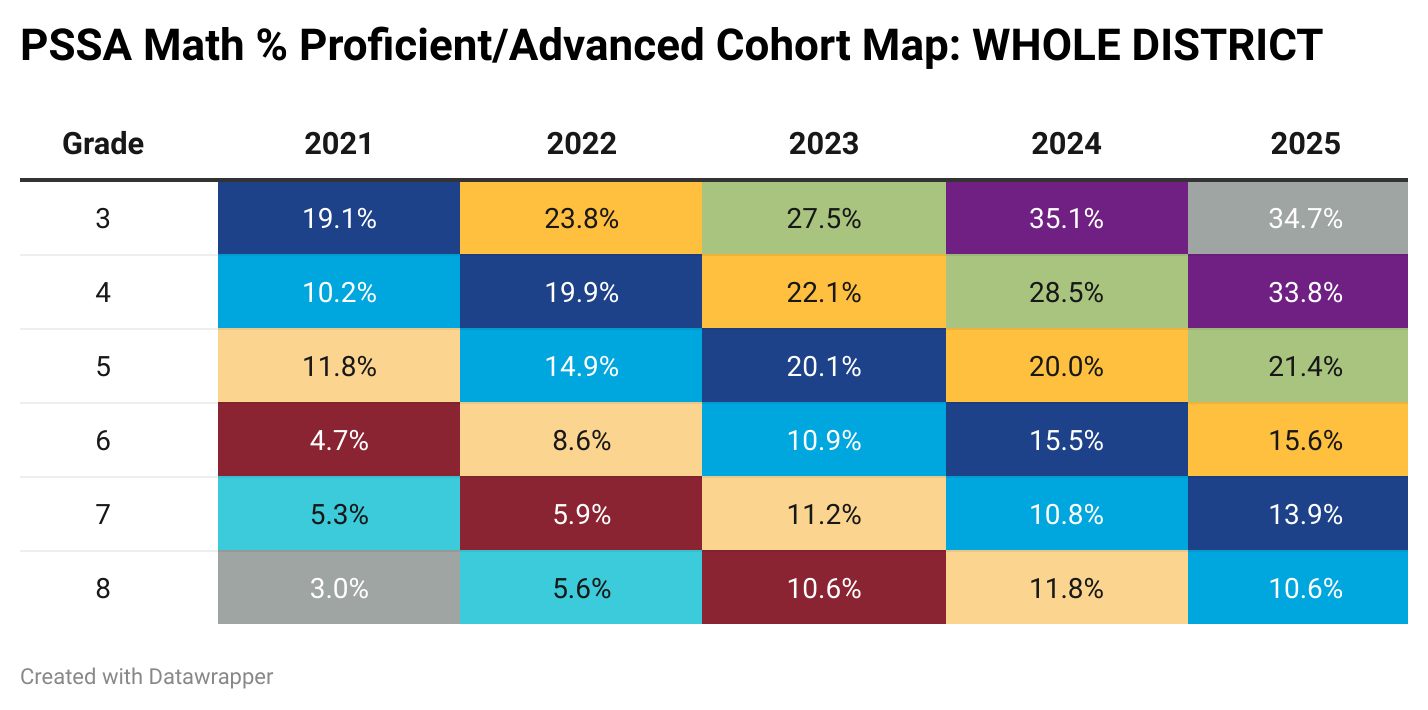
At the School District of Lancaster, data serves as both a compass and a foundation for student success. Every insight, every report, and every decision connects back to one goal, improving outcomes for our students. The Office of Data Analytics and Strategy leads this work by developing district plans with stakeholders, maintaining data quality, conducting research on program effectiveness, and providing the tools and training that help departments use data with confidence.
Each month, the office highlights a staff member who demonstrates how data can transform teaching and learning. This month’s Data Champion is Laura M. Trimble, Instructional Coach for Elementary Mathematics.
Laura has been part of the School District of Lancaster for twenty-eight years, beginning her career as a classroom teacher before becoming a building instructional coach and now serving districtwide. Throughout her career, she has remained deeply curious about how students learn and how educators can use data to strengthen instruction. Her passion lies in helping teachers move beyond numbers on a spreadsheet to see what the data truly represents, the story of a student’s learning journey.
In her current role, Laura supports elementary schools across the district in implementing and refining math instruction. Much of her work centers on helping teachers interpret data from classroom assessments, district benchmarks, and state tests to identify patterns that guide instructional decisions. She works side by side with teachers to analyze results, uncover trends, and determine which instructional strategies best meet the needs of each student.

Laura’s collaboration with the Office of Data Analytics and Strategy has brought a new level of depth to how math data is viewed across the district. Together, they developed cohort maps that track the same group of students as they progress from third to fifth grade. Rather than comparing one year’s class to another, these maps reveal longitudinal trends that show how specific cohorts are growing over time. This allows educators to ask more meaningful questions such as whether instructional changes are producing lasting effects and where additional support might be needed.
The insights from these cohort maps have already proven valuable. Over the past four years, elementary math proficiency and advanced rates on the PSSA have steadily increased districtwide. By looking at the data through a cohort lens, Laura and her team can see which instructional shifts are contributing to that growth. These findings help guide professional learning, curriculum adjustments, and school-based interventions, ensuring that decisions are grounded in evidence rather than assumption.
In addition to cohort mapping, Laura helped create a districtwide data collection tool based on the National Council of Teachers of Mathematics’ Effective Math Teaching Practices. The tool allows instructional teams to visit classrooms and record specific evidence of teaching and learning. This includes how teachers engage students in reasoning, connect mathematical ideas, and provide opportunities for discourse. Once the data is collected, the Office of Data Analytics and Strategy compiles it into reports that give schools a clear picture of their instructional strengths and areas for growth. Principals and leadership teams then use these reports to establish goals for school improvement and identify targeted professional learning opportunities.

For Laura, this process is about making data accessible and creating a culture of continuous learning.. She often reminds colleagues that data only matters if it helps educators make better decisions for their students. She encourages teachers to start small by focusing on the information that answers their most pressing questions. One of her favorite strategies is simple yet powerful: color-coding spreadsheets to make patterns visible at a glance. A single look can reveal which concepts students have mastered and where reteaching might be needed.
Laura’s passion for mathematics goes hand in hand with her commitment to data-informed decision-making. She approaches numbers not as rigid outcomes but as relationships waiting to be explored. To her, analyzing data is like solving a math problem; it is about uncovering the “why” behind the results. This mindset helps shift classroom conversations from compliance to curiosity, empowering teachers to use data as a tool for growth rather than a measure of judgment.
Laura is helping redefine how educators across SDoL talk about math. She often reminds colleagues that the goal is not to memorize procedures but to understand the reasoning behind them. That same philosophy drives her approach to data. By seeking patterns, asking questions, and sharing insights, she transforms information into action.
Through her collaboration with the Office of Data Analytics and Strategy, Laura Trimble has shown that data can do more than measure progress. It can create it. Her work exemplifies what happens when analysis and instruction move hand in hand. By connecting numbers to narratives and evidence to impact, she continues to help SDoL make decisions that truly support student success.
The School District of Lancaster proudly recognizes Laura Trimble as this month’s Data Champion. Her commitment to using data with purpose and clarity reflects the best of our shared mission: ensuring every student has the opportunity to learn, grow, and thrive.

